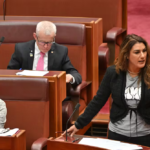Our study in BMC Health Services Research looked into recommendations under the global Choosing Wisely public health campaign. We found professional societies are reluctant to publish recommendations against treatments and procedures that generate income for their members.
But they are much more comfortable at recommending against treatments that generate income for members of other professional societies.
How does the Choosing Wisely campaign work?
Choosing Wisely aims to reduce the use of medical tests, treatments and procedures that provide little-to-no benefit, or in some cases can harm.
It then recommends patients question their doctors about whether these so-called low-value tests, treatments or procedures are necessary.
To take part in the Choosing Wisely campaign, professional societies publish recommendations relevant to their members.
For example, a surgical society could list a surgical procedure of questionable effectiveness. A physiotherapy society could also list a poorly justified physiotherapy treatment. This ensures recommendations raise awareness of low-value care among the practitioners most likely to provide this care.
However, an ongoing concern is whether professional societies focus on low-value care provided by their members or whether they tend to make recommendations for care provided by others, outside their own society.
Many low-value tests, treatments and procedures also generate substantial income for the practitioner who provides them. So societies might be reluctant to recommend against or “call out” these examples of low-value care because of fear of affecting their members’ bottom line.
What did we do?
To investigate these concerns, we evaluated all Choosing Wisely recommendations worldwide since the campaign began in 2012.
We reviewed 1,293 recommendations from eight countries, including Australia, to investigate the proportion of recommendations that target income-generating treatments. We also investigated whether recommendations on income-generating treatments were more likely to come from societies involved, or not involved, in providing this care.
Treatments or procedures that attract a fee-for-service and are performed outside a routine encounter with a practitioner were considered income-generating for the practitioner performing the treatment. Examples included arthroscopic surgery of the knee and shoulder, cesarean section, removing a breast lump and radiotherapy.
Radiotherapy was one of the treatments counted as income-generating, as part of our study. from www.shutterstock.comWe then examined each recommendation and determined whether the society making the recommendation was targeting a treatment routinely provided by members of their society or members of another society.
There were over 230 professional societies with Choosing Wisely recommendations across medicine, surgery, diagnostic testing and allied health. Examples of professional societies from Australia included the: Royal Australian College of General Practitioners; Royal Australasian College of Surgeons; Australian Physiotherapy Association; and Royal College of Pathologists of Australasia.
Here’s what we found
Overall, we found only 20% of Choosing Wisely recommendations target income-generating treatments. But more importantly, of these recommendations, most target treatments provided by practitioners that are not members of the society making the recommendation.
For example, the Australian Rheumatology Association recommends against arthroscopy for knee osteoarthritis, a surgical intervention that rheumatologists don’t perform (this is generally carried out by orthopaedic surgeons):
Do not perform arthroscopy with lavage and/or debridement or partial meniscectomy for patients with symptomatic osteoarthritis of the knee and/or degenerate meniscal tear.
Meanwhile, the American Academy of Orthopaedic Surgeons, whose members perform arthroscopy, doesn’t recommend against the procedure. Instead, it points the finger at clinicians who routinely provide insoles:
Don’t use lateral wedge insoles to treat patients with symptomatic medial compartment osteoarthritis of the knee.
Why does it matter?
Choosing Wisely aims to reduce waste in health care. But when societies mainly look for waste in fields other than their own, their recommendations are likely to have less impact.
To illustrate this, eight societies of orthopaedic surgeons have collectively published 48 Choosing Wisely recommendations. But only nine of these recommendations target low-value surgery routinely performed by orthopaedic surgeons. Most of these are from the Netherlands Orthopaedic Association (five out of nine recommendations).
By shying away from publishing recommendations that target ineffective and expensive interventions performed by their own members, professional societies are not acting in line with the spirit of the campaign.
Choosing Wisely could have a large impact on redirecting health-care spending from low-value care to recommended care, thereby improving the lives of millions. But for the campaign to realise its potential, ensuring future recommendations focus on the care provided by members of the society making the recommendation is a good place to start.
This article was written by Dr John Farey, a surgical registrar affiliated with the Institute for Musculoskeletal Health and the Sydney Local Health District, Joshua Zadro, a Postdoctoral Research Fellow at the University of Sydney; Christopher Maher a Professor at the Sydney School of Public Health and Ian Harris, a Professor of Orthopaedic Surgery at UNSW. It was published by The Conversation.













